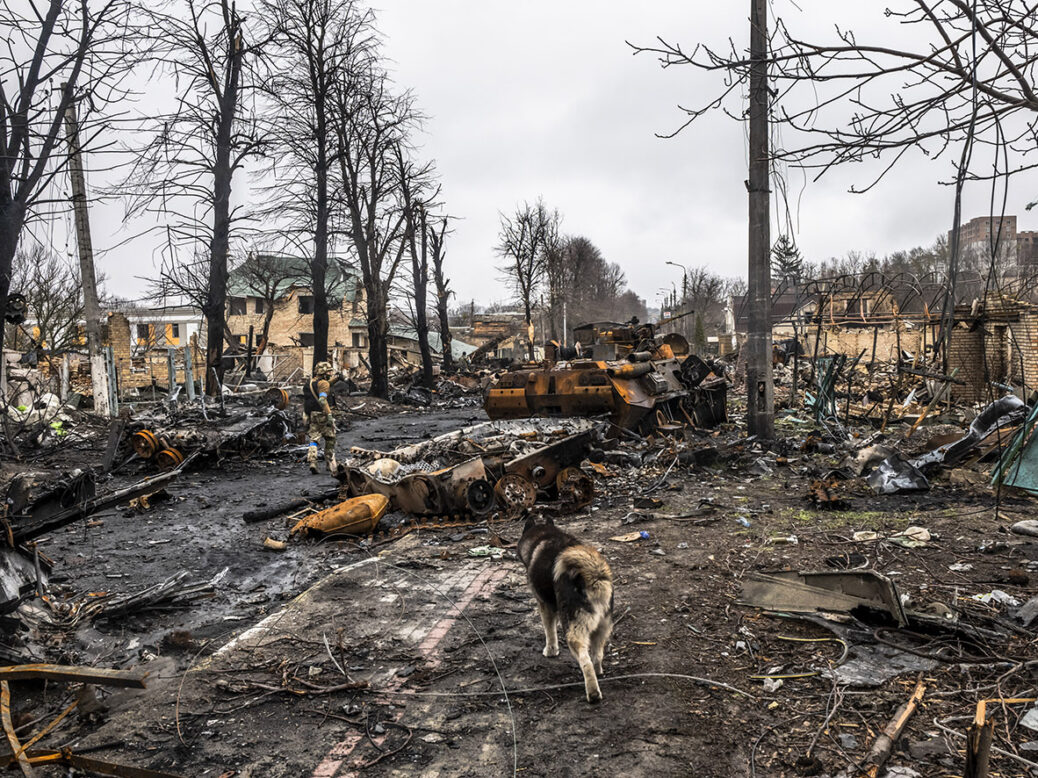
Evidence of what appear to be horrific war crimes committed by Russian forces in the Ukrainian town of Bucha, a suburb of Kyiv, is continuing to mount. There are photos of bodies lying in the street, some with their hands tied behind their backs. Dozens were buried in mass graves. Irina Benediktova, the prosecutor general of Ukraine, says officials have counted at least 410 bodies so far.
Separately, Human Rights Watch, a monitoring group, said it had documented evidence of war crimes in the regions of Chernihiv, Kharkiv and Kyiv. These included rape and summary execution-style murders, the group said.
The atrocities have been condemned around the world. The French president Emmanuel Macron called them “unbearable”. Anthony Blinken, the US secretary of state, called them a “punch to the gut”. Perhaps most poignantly, Volodymyr Zelensky, the Ukrainian president, speaking in Russian, told Russians: “this is how the Russian state will now be perceived. This is your image. Your culture and humanity perished together with the Ukrainian men and women to whom you came.”
Russia’s propagandists have been putting out the same pretexts as always in response to the reports. It didn’t happen. If it did happen, it was a false flag. If it wasn’t a false flag, they had it coming. The usual dupes will lap it up. The rest of us will see right through it.
On the political side, the atrocities in Bucha – and possible evidence of further crimes emerging from other areas occupied by Russia during its ill-fated push towards Kyiv – will drive calls for further sanctions. The EU imposing a total embargo on Russian energy no longer seems completely implausible. Even Germany, which guzzles up Siberian energy, has hinted that the bloc should consider banning imports of Russian gas, a move Berlin has previously fiercely resisted.
An import ban would probably hit Russia harder than any of the sanctions already imposed, already some of the harshest in history. Oil and gas revenues accounted for about 45 per cent of Moscow’s federal budget in January, according to the International Energy Agency. The figure is likely higher now, because other sectors of the Russian economy are collapsing while energy prices have risen.
Finally, Bucha may make a ceasefire between Russia and Ukraine less likely. Kyiv will be less willing to accept a truce that leaves Ukrainians at Russia’s mercy after this evidence of how Moscow’s forces treat civilians in areas it occupies. “Ukraine cannot possibly concede territory in a ceasefire because they know that would consign millions of Ukrainians to Russian rape, torture and murder,” wrote Chris Bryant, a British MP.
In some ways, what is most devastating about Bucha is what the photos of corpses lying on the town’s streets can’t tell us. The outside world has little idea of what is really happening now in Mariupol and Kherson, two cities that the Russians are mostly in control of, let alone in more isolated settlements where communications have been cut off for weeks. One consequence of this weekend could be that those responsible for past and future atrocities in Ukraine will seek to better conceal them. If there are indeed other Buchas, we may never know their full extent.



